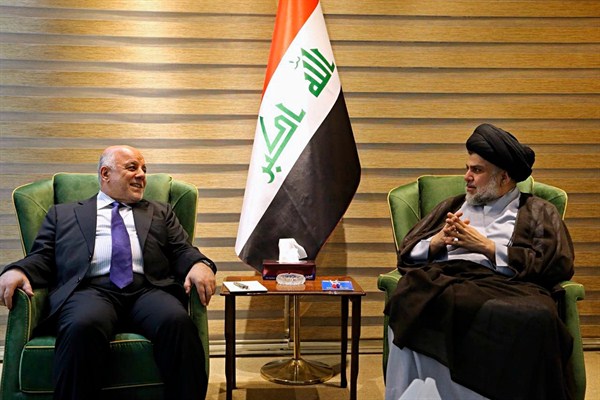To judge by much of the expert commentary so far, last week’s parliamentary elections in Iraq were a setback for the United States. The winning coalition, led by the cleric Muqtada al-Sadr, has been viewed as anti-American—but also not quite pro-Iranian, given Sadr’s reinvention as an Iraqi nationalist. The affable incumbent, Prime Minister Haider al-Abadi, came in third, behind an explicitly pro-Iranian coalition.
It usually takes Iraq many months of bargaining to actually form a new government. In the 2014 elections, it took about four months; in 2010, it took nearly nine months. So it isn’t yet clear who will emerge on top. Sadr did not run as a candidate and has already ruled himself out as prime minister, but many Iraqis believe he is setting himself up to be kingmaker, so it is still possible that a coalition led by Abadi will emerge, with Sadr’s essential backing. As Joost Hilterman of the International Crisis Group points out, Iraqi media in fact considers Sadr and his Sairoon alliance to be part of the “American coalition,” along with Abadi’s electoral list—presumably because of Sadr’s record of trying to preserve Iraqi independence vis-à-vis Iran, not because he embraces pro-American positions.
It’s a sad truth that Iraqis see themselves as pawns in a struggle between Washington and Tehran, even as a few Iraqi politicians work valiantly to build cross-sectarian coalitions and promote national solutions to the country’s problems without reference to the preferences of outside actors. And voters turned out at the polling stations in low numbers because of their disdain for the corrupt political culture, irrespective of politicians’ international orientation.

